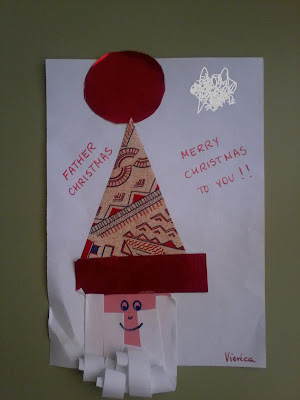Kamelle Competition at Lope de Vega Primary School in Spain has been too much fun for the kids once again. Six groups of three different years participated in this competition and the results were so different, but so close to each other. The age of the students was not a reason to get behind in the competition. I am going to writing down the best results.
You can see these results of the competition in November 2012 below. Thank you so much for the Physical Education Teacher who made students have such fun. And congratulations to the winners:
Team Gold: Costi, Lucía, Mireya, Davinia ----- Year 4, Group A They did the competition in only 2 minutes and 44 seconds.
Team Silver: Samuel, Raúl, Juan, Carolina, Nerea ----- Year 1, Group B They did the competition in only 2 minutes and 51 seconds.
Team Bronce: Manolo, Violeta, Darío, Martín, Miguel Ángel, Luna ----- Year 2, Group A They did the competition in only 3 minutes.

































